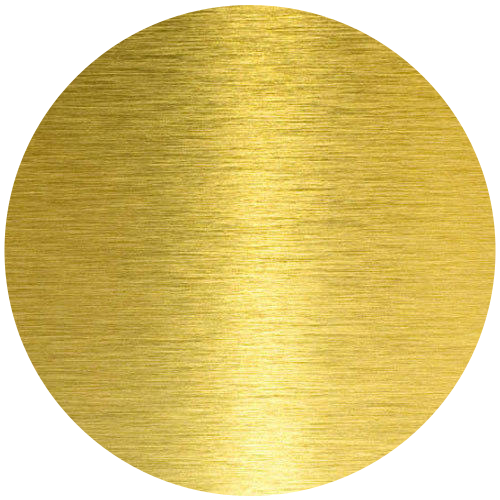Brass requires less energy to recycle than aluminum or steel. And because of that brass has earned the rating of one of the most environmentally friendly metals in the world!
Plus, it’s much more cost-effective than producing brass from raw materials, requiring less energy and resources to do so.
The third benefit is that brass scrap can be repurposed endlessly.
Modern brass is routinely 67% copper and 33% zinc, but it can range from 55% - 95% copper and 5% - 45% zinc. The more copper used, the more rose the color is; the more zinc, the more silver the color is.

At Atlas Metal and Iron, we accept:
- Radiators
- Plumbing brass
- Hardware
- Machine brass
- Keys
- Locks.
Bullet casings are traditionally made from brass, aluminum, or steel, but Atlas Metal and Iron does not recycle bullet casings for safety reasons.
RECYCLED BRASS HAS MANY USES
- Brass is non-magnetic so it’s used for clock and watch components and electrical terminals.
- It’s the metal of choice for musical instruments for its acoustic properties.
- It's ideal as an alloy for the transport of water through pipes and fittings and it’s used in marine engines and pump parts and naval ships.
- Radiators
- Architectural trim
- Pipes
- Tubing
- Screws, locks, hinges, gears, bearings, ammunition casings, zippers, plumbing, hose couplings, valves, and electrical plugs and sockets.
BRASS COMES IN SEVERAL TYPES
You might have heard the term “brass balls.” No, we don’t recycle those at Atlas.
Alloy 360 is the most commonly used type of brass today. Other types of brass are known as:
- Yellow Brass
- Red Brass
- Hard Brass
- Brass Clips
- Mixed Brass
- Brass Shells
- Brass/Copper Radiators
- Brass Turnings/Borings.
- Dirty brass is when brass has paint, oil and other metals attached to the scrap. If copper is attached to your brass scrap, that’s not considered dirty because copper is used to produce brass.
BRASS IS INFINITELY RECYCLABLE
Collecting brass scrap and working with Atlas Metal and Iron makes the recycling process much easier and gets you the best market price possible!
During the recycling process, brass is shredded to create a larger surface volume (making it more energy efficient to melt), melted and purified, then poured into ingots ready for repurposing.
Brass, like copper, is infinitely recyclable. In turn, recycling brass helps keep the cost of brass products lower.
BRASS VALUE
However, a pound of brass is almost always more valuable than a pound of steel or aluminum, yet less valuable than pure copper. For this reason, it pays to clean up your work site and collect the reward at Atlas Metal and Iron.